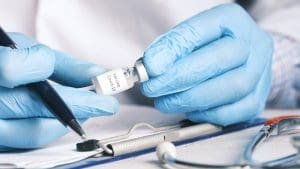By. Nicole Garcia
You may have heard of papillomavirus, or HPV for short, as a common infection that can cause warts or cancer. But what exactly is HPV and how can you protect yourself from it?
HPV is a group of viruses that can infect your skin or the moist areas of your body, such as your mouth, throat, or genitals and is very common and easy to catch.
The HPV spreads through skin-to-skin contact and anyone who has any kind of sexual activity with another person involving oral, genital, or anal.
Most people who have HPV do not know they have it and do not have any symptoms. However, some people may develop warts on their fingers, hands, feet, or genitals. These warts are usually painless and harmless, but they can be embarrassing and uncomfortable.
Some types of HPV can also cause changes in your cells that sometimes lead to cancer if they are not treated.The most common cancer caused by HPV is cervical cancer, which affects the lower part of the uterus that connects to the vagina. Other cancers caused by HPV include anal cancer, penile cancer, vulvar cancer, vaginal cancer, and some types of head and neck cancer.
Worldwide, cervical cancer is the fourth most frequent cancer in women with an estimated 604 000 new cases and 342 000 deaths in 2020. Cervical cancer is by far the most common HPV-related disease. And nearly all cases of cervical cancer can be attributed to this virus.
The good news is that there is a vaccine that can protect you from getting HPV and prevent the cancers it can cause. The vaccine protects against the types of HPV that cause most cases of genital warts and cervical cancer, as well as some other cancers.
There are 2 HPV vaccines available in Canada: Cervarix® (HPV2) and Gardasil®9 (HPV9). The vaccines are approved by Health Canada, with HPV9 approved for use in both sexes, and HPV2 approved for use only in females.
The HPV9 vaccine is recommended for all children in grade 6 to protect them from HPV infections that can cause cancer and genital warts later in life. The vaccine is provided free as part of BC’s routine immunization program.
Those not eligible for the free vaccine can buy it at most pharmacies, travel clinics, and some sexual health clinics. Some health plans cover the cost of the HPV vaccine. To know if you can get vaccinated, always talk to your doctor or other health care provider.
It is best to get immunized before becoming sexually active and coming in contact with HPV because the vaccines prevent infection but do not clear it. However, a person can still benefit from immunization if they are already sexually active. This is because the likelihood they have been exposed to all types of HPV contained in the vaccine is low.
For more information about the HPV, screening tests for cancer and the vaccination program in British Columbia, always consult with your doctor and other health care provider to know what is best for you and your children. Remember to get vaccinated against COVID-19 and keep your boosters up to date. Contribute to saving lives and overcoming the crisis. Get vaccinated and let’s move forward together!
Sources:
Cervical cancer (who.int)
https://immunizebc.ca/vaccines-by-disease/hpv
https://www.cdc.gov/hpv/parents/vaccine/six-reasons.html
https://www.uchicagomedicine.org/forefront/cancer-articles/why-get-the-hpv-vaccine




